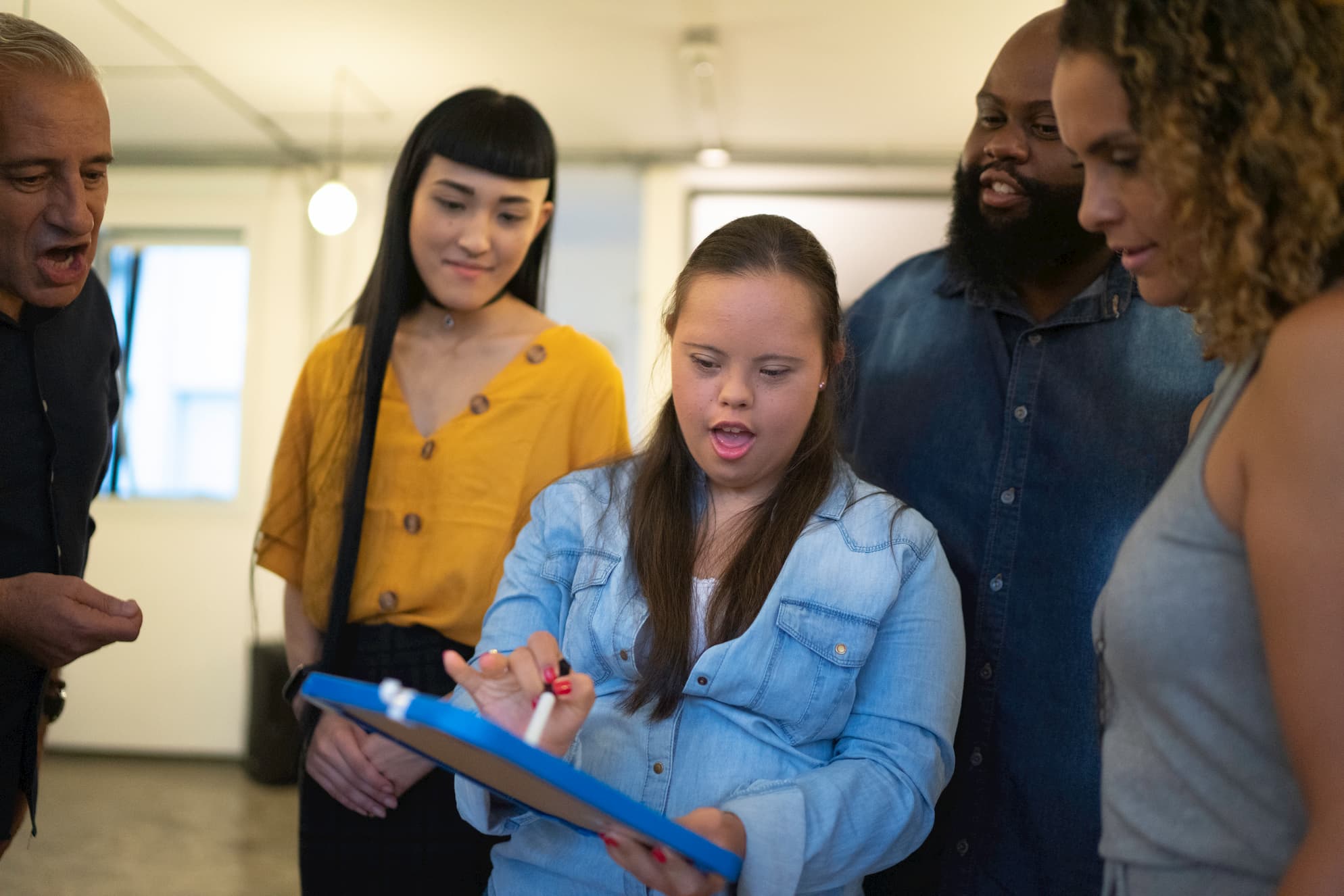Work and the DSP (Easy Read)
|
|
The Disability Support Pension (DSP) is paid by the government. It is for people with disability who cannot work or need support to work. |
What some people think
|
|
Lots of people who get the DSP think they lose money if they do paid work. This is not true. |
|
Sometimes people are told it is good to get a very low wage so they don’t affect their DSP. This is not true. |
You are always better off if you earn an income
|
|
The Australian Government wants people with disability to work. |
|
|
The DSP has rules that let you do quite a bit of work without losing your DSP. |
|
The rules say: |
|
|
|
|
|
|
You are still better off. |
How does earning an income affect my DSP?
|
|
Some of this information may sound confusing. It is okay to get someone to help you understand it. |
|
|
The DSP rules say how much you can earn before your DSP changes. |
|
In 2020 you can earn $178 each fortnight from having a job and your DSP stays the same. |
|
|
|
For every extra dollar you earn after $178, your DSP will go down 50 cents. But this means you are still 50 cents better off for every extra dollar you earn. |
|
|
Here are some examples:
That means you get some DSP + $578. |
|
|
Can you see that working means you end up with more money? |
The 2-year rule
|
If you do earn too much, you still won’t lose your DSP. But your DSP money can be stopped for 2 years. This is called the 2-year rule. |
|
|
|
The 2-year rule is a good thing. It means you can earn more money without losing your DSP. If you lose your job or your income drops:
|
|
|
Your DSP money can be stopped for 2-years if you:
or
|
|
The cut-off limit is the most money you can earn before the government stops your DSP money. |
|
|
|
You can have the pensioner Concession Card for 1 year after your DSP money stops. Concession Card is sometimes called a pension card. It lets you get special benefits like cheaper medication. |
|
An example of the 2-year rule is: |
|
|
|
Jurrah is 22 and is on a DSP. He got a job in open employment. |
|
He packs flowers to send from the warehouse to the shops. He is on an award wage. |
|
|
Because he works 30 hours each week, Jurrah’s DSP was stopped. But Jurrah was paid more than his pension for working. And Jurrah got to keep his concession card. |
|
|
After 6 months, work got quiet. Jurrah’s hours went down to 25 hours each week. Jurrah told Centrelink this. His DSP money started again; Jurrah also still got his pay from work. |
|
|
Jurrah was always better off working. |
|
Here is an example if you have worked more than 29 hours per week for more than 2 years. |
|
|
|
Amber is on a DSP. She gets a job in an office working 34 hours a week. Her DSP money is stopped because she works more than 29 hours per week. |
|
|
Amber still earns more money than her DSP. |
|
|
After 2 years Amber’s DSP is cancelled. If Amber’s hours go down, she will have to reapply for the DSP. |


























